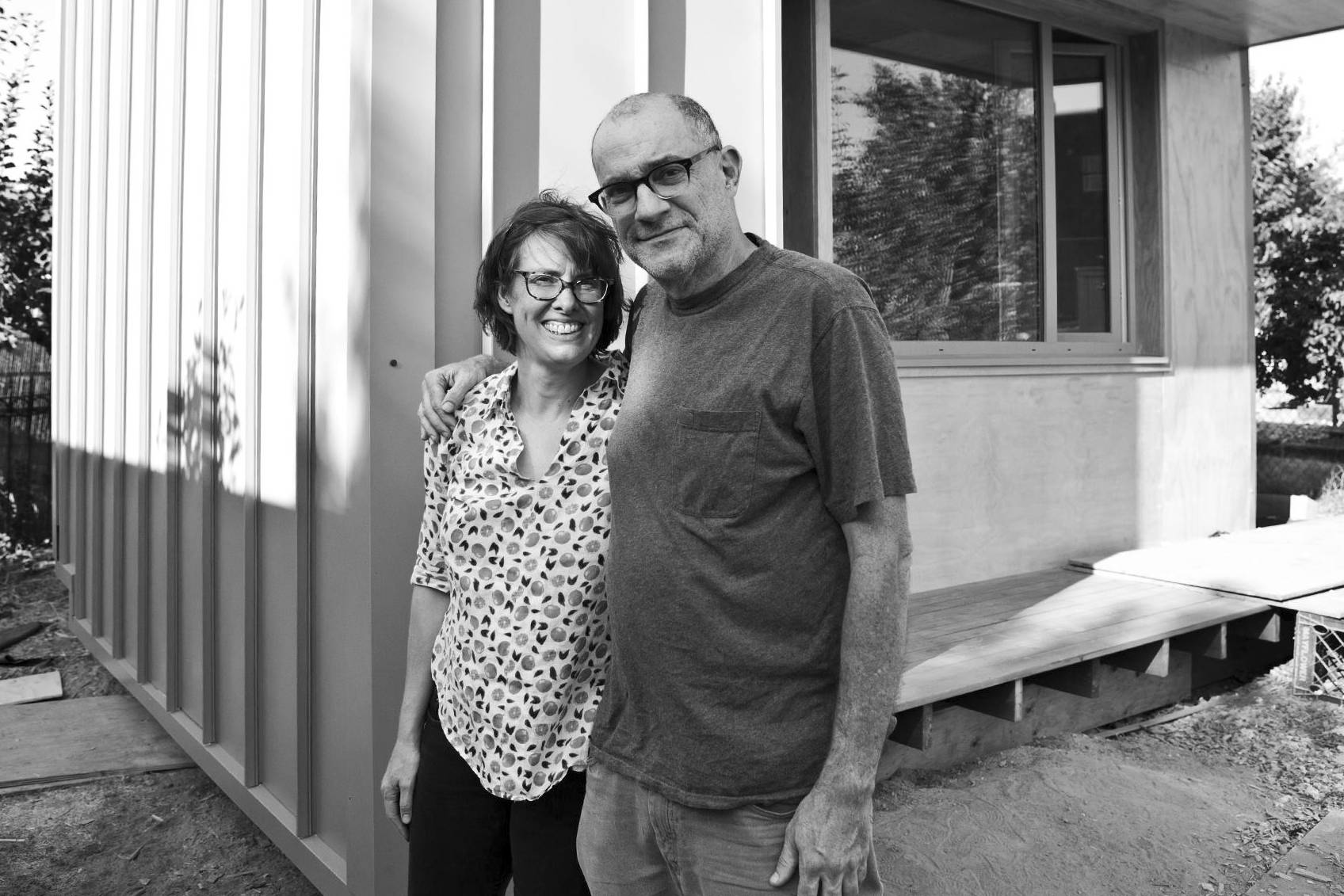Fisher Flour Mill’s towering silos on Harbor Island began storing grain in 1911, but for years they’ve stood empty and increasingly adorned with graffiti. That’s all changing thanks to a new partnership between King County and two non-profits. This time, the revived space will be used to address homelessness.
On Friday, King County Executive Dow Constantine announced that the old flour warehouse will be donated to Facing Homelessness’ BLOCK Project (a Seattle-based program that creates backyard cottages for the homeless) and Humble Design (a Detroit-based nonprofit that furnishes homes for people transitioning out of homelessness). The warehouse will be used as a drop-off center for people donating furnishings to Humble Design, and BLOCK Project volunteers will build its tiny homes on-site before moving them to residential backyards.
Adrienne Quinn, King County Department of Community and Human Services director, caught wind of the two organizations and offered them free use of the space. King County purchased the 12.1 acre site for $8.5 million in 2003 as a potential site for an intermodal waste facility. Now, the county will conduct repairs and ensure that the space is up to code before the organizations move in, according to Chad Lewis, a spokesperson for Executive Constantine. The county projects that the non-profits will be up and running in the space by early April.
“People become homeless for many reasons, and there is no single solution to the homelessness crisis. To make a difference, it will take all of us – government, philanthropy, everyday people – bringing resources, energy, and ideas,” Executive Constantine said in a press release. “King County’s partnership with the BLOCK Project and Humble Design underscores that we all have something to offer our neighbors in need, and we can all do our part to help people and families leave the streets and the shelters and become healthy, happy, and self-sufficient.”
So far, the BLOCK Project has built one pilot cottage in Beacon Hill last year. Facing Homelessness Project Managing Director Sara Vander Zanden envisions that the warehouse space will allow the organization to achieve its goal of building 20 homes by the end of 2018, and 500 within the next five years.
Previously, the BLOCK Project used donated space from Turner Construction Company to prefabricate the first home prior to completing its construction at the Beacon Hill site. The new partnership with the county will allow volunteers to prefabricate a home in the warehouse before delivering the panels to the backyard, where volunteers will finish assembling it. Vander Zanden projects that up to 40 BLOCK homes in their panelized forms can be stored in the warehouse.
Over 100 people have offered up their backyards as potential BLOCK sites, and the organization receives daily emails from people who are interested in learning more.
“We have so many families coming forward and saying, I can’t be a bystander anymore. I can’t continue to not be a part of the solution,” Vander Zanden said.
Each of the 125 square-feet homes features a kitchen, solar panels, bathroom, and a composting toilet. As part of their model, the BLOCK Project is committed to placing the homes in residential backyards where the new resident will be invited into the community. “It’s a model of integration,” Vander Zanden said. “We want to get away from creating the other and instead begin to think of our homeless neighbors as neighbors.”
mhellmann@seattleweekly.com
Update: This story has been updated to include information about the timeline.








